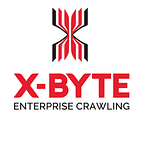How HRs and Job Recruiters can Leverage Web Scraping for Better Hiring?
It is projected that less than 40M people are using LinkedIn for searching jobs, as well as ~87% of the recruiters, depend on LinkedIn for evaluating and communicating with potential applicants. As candidates raise their dependence on recruiting websites and social media, the recruiter need to take advantage of the web data during the hiring procedure. Recruiters are using web scrapers for automating data extraction from recruiting these websites to analyze job markets, understand candidates’ qualifications, as well as optimize their hiring procedure.
Benefits of Web Scraping from Recruiters’ Point of View
There are over 40,000 employment sites in the USA alone that serve as a bigger pool of applicant data. Scraping applicable data from the employment sites could be a tiresome and time-consuming task, so, web scrapers could offer the following benefits:
- Allow a data-driven decision-making approach for hiring
- Decrease the time spent on physically scraping candidate data
- Lessen the cost of hiring teams to scrape data
- Offer almost real-time data regarding job postings
Web Scraping Use Cases in HR & Recruiting
Every 2 out of 3 recruiters are not using any tools required to know the market as well as a talent pool from which they are recruiting. So, recruiters can influence web scrapers to:
Candidate Resourcing
Creating a Talent Pool
77% of the recruiters believe that they are more competent in their employing efforts while they have the solid market understanding as well as talent pool they recruit from. Any talent pool is the listing of candidates that could be qualified for future or current job openings within the organization. Recruiters may utilize web scraper bots for collecting candidates’ lists from the employment sites to make an updated talent database for an organization as well as create relationships with the candidates before applying.
Compare Candidate’s Qualifications
Web scrapers could collect data about applicants from targeted platforms like their profiles on different employment sites or their social media accounts. Data scrapers may also get programmed to scrape qualification-particular data like skills fields or education in the candidates’ profile. Recruiters may leverage the scraped data for analyzing candidates’ qualifications as well as estimate their matching to particular positions.
Gather Candidate’s Contact Information
Web scrapers could collect applicants’ contact data like phone numbers and email addresses from employment sites to allow recruiters for reaching out as well as contact applicants qualified for the open positions.
Target Candidates in Any Particular Geographical Regions
Certain web scrapers incorporate IP proxies to allow access to the region-particular data. It allows recruiters to focus on candidates in the particular region if the role needs employees to do on-site work.
Sponsored
Web crawling software like Bright Data scrapes real-time public information from online platforms as well as delivers that to the businesses on autopilot with various formats. Also, they integrate residential as well as data center proxies for scraping data from particular geographical regions and bypass the website’s protection mechanisms, which limit the bot data access.
Job Market Analysis
Understand Salary Ranges
The majority of recruitment sites like Salary.com or Glassdoor offer data about different salary ranges for particular roles, years of expertise, as well as geographical areas. Web scrapers could be used for collecting salary ranges for job openings of an organization to assist recruiters in understanding candidates’ potentials as well as optimize salaries accordingly.
Identify Job Requirements
Different recruiters could understand skill and education requirements for any particular roles through monitoring what the competitors look for in the candidate. Web scrapers could gather data from competitors’ job listings as well as job post’s data to assist recruiters in creating superior job descriptions.
Creating Competitive Job Offerings
Web scrapers may also collect data from competitors’ sites regarding training opportunities, suppleness in vacation days or working hours, or benefits, etc. Through understanding competitors’ contributions, recruiters can improve their job offerings as well as advantage packages to fascinate candidates as well as avoid losing them in the competition.
Best Practices of Web Scraping for Recruitments Data
To get maximum web scraping abilities during the recruiting procedure, businesses can now follow the finest practices that include:
Selecting the Finest Employment Platform: Thousands of employment platforms and sites are there today, although, some platforms offer an extensive range than others, where others could be more place-targeted. For instance, Indeed and LinkedIn have an extensive database for different kinds of positions across the world, while Stack Overflow and GitHub are more concentrated on programming as well as tech positions.
Updating Different Candidate Pools: You have ~15M job openings as well as 35,000 skills given on LinkedIn only, and getting updated with all hiring. So, it is very important to extract employment sites frequently to keep talent pools updated.
It is very important to check in case, the site you wish to extract helps bot scraping, or you would face many legal issues like the case of LinkedIn vs. hiQ Labs in which hiQ had breached the User Agreement of LinkedIn that particularly prohibits auto access as well as scraping.
For more information, contact X-Byte Enterprise Crawling or ask for a free quote about HR & Job Recruiter Web Scraping services.
Originally published at https://www.xbyte.io.
